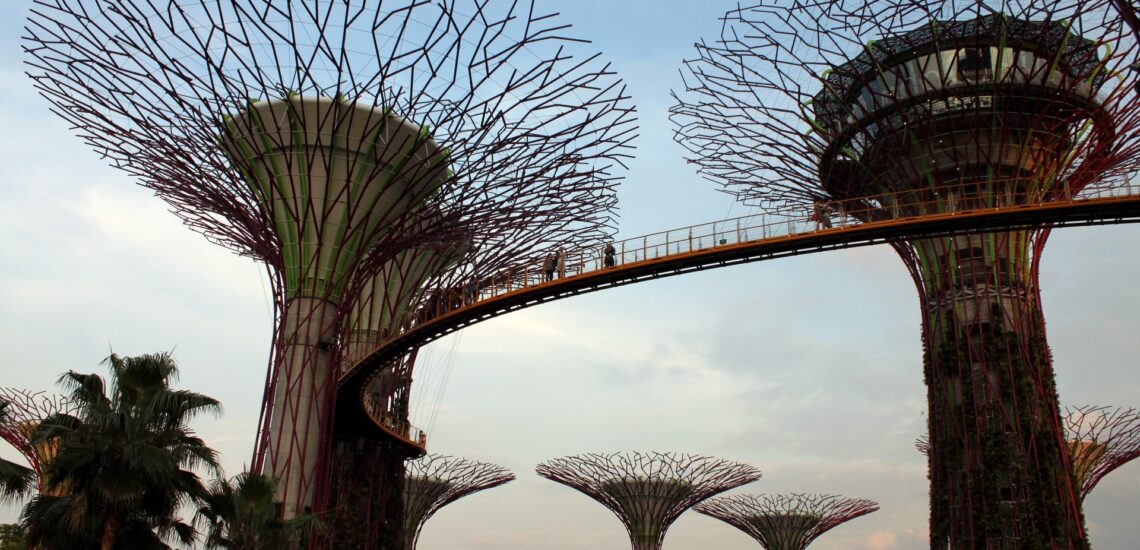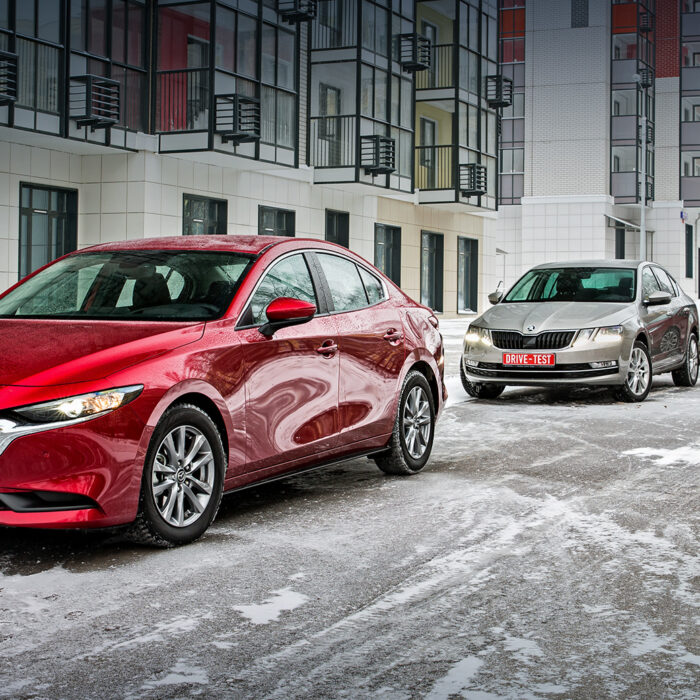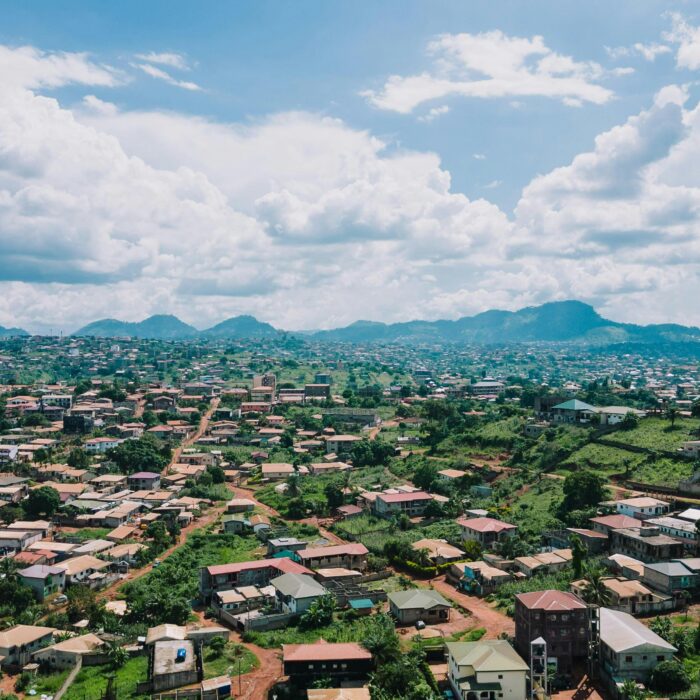Quick facts about Singapore:
- Population: Approximately 5.7 million people.
- Capital: Singapore City.
- Official Language: Malay, Mandarin, Tamil, English.
- Currency: Singapore Dollar.
- Government: Unitary parliamentary republic.
- Major Religion: Buddhism, Christianity, Islam, Hinduism.
- Geography: Located in Southeast Asia, off the southern tip of the Malay Peninsula, separated from Malaysia by the Strait of Johor.
Fact 1: Singapore is a small country that grows its territory by reclaiming it
Singapore, a small island city-state situated off the southern tip of the Malay Peninsula, has expanded its land area through a process known as land reclamation. Due to its limited land resources and growing population, Singapore has undertaken extensive land reclamation projects over the years to create additional space for urban development, infrastructure, and industries.
Land reclamation involves reclaiming land from the sea by filling it with soil, rocks, or other materials to extend the shoreline and create new land. Singapore has reclaimed land from its surrounding waters using advanced engineering techniques and technologies. These reclaimed lands have been used for various purposes, including the construction of ports, airports, industrial estates, residential areas, and recreational spaces.
Some notable examples of land reclamation projects in Singapore include the Marina Bay Sands integrated resort, Gardens by the Bay, and the Jurong Island petrochemical complex. Land reclamation has played a crucial role in Singapore’s development and urbanization.

Fact 2: Singapore is one of the most expensive cities in the world
Singapore consistently ranks among the most expensive cities in the world to live in according to various global surveys and indices, including the Economist Intelligence Unit’s Worldwide Cost of Living report and the Mercer Cost of Living survey.
Several factors contribute to Singapore’s high cost of living, including:
- Housing: Singapore has one of the most expensive real estate markets globally, with high property prices and rental rates driven by limited land availability and strong demand.
- Transportation: While Singapore’s public transportation system is efficient, owning and maintaining a car can be costly due to high vehicle taxes, Certificate of Entitlement (COE) fees, and road tolls.
- Goods and services: The prices of everyday goods and services, including groceries, dining, entertainment, and healthcare, are relatively high compared to many other cities worldwide.
- Education: Private education and international schools in Singapore can be expensive, contributing to the overall cost of living for families with children.
Note: If you are planning a trip, check if you need an International Driving License in Singapore to drive.
Fact 3: Singapore is one of the greenest cities
Several factors contribute to Singapore’s reputation as a green city:
- Urban greenery: Singapore is known for its lush greenery, with extensive parks, gardens, and nature reserves integrated into its urban landscape. The city-state boasts iconic green spaces such as Gardens by the Bay, the Singapore Botanic Gardens (a UNESCO World Heritage Site), and the Southern Ridges, offering residents and visitors opportunities to connect with nature amidst the urban environment.
- Vertical greening: Singapore has implemented innovative initiatives to maximize greenery in its urban areas, including vertical greening projects such as green walls and rooftop gardens on buildings. These initiatives not only enhance the aesthetic appeal of the cityscape but also help improve air quality, reduce urban heat island effects, and provide habitat for biodiversity.
- Sustainable development: Singapore prioritizes sustainability in urban planning and development, incorporating green building standards, energy-efficient infrastructure, and water conservation measures into its urban projects. The city-state’s commitment to sustainability is evident in initiatives such as the Singapore Green Plan 2030, which outlines strategies for advancing environmental sustainability and addressing climate change.
- Environmental conservation: Singapore places emphasis on environmental protection and conservation efforts, including the preservation of natural habitats, biodiversity conservation, and ecosystem restoration. The city-state actively manages its nature reserves, coastal areas, and marine ecosystems to safeguard biodiversity and enhance ecological resilience.
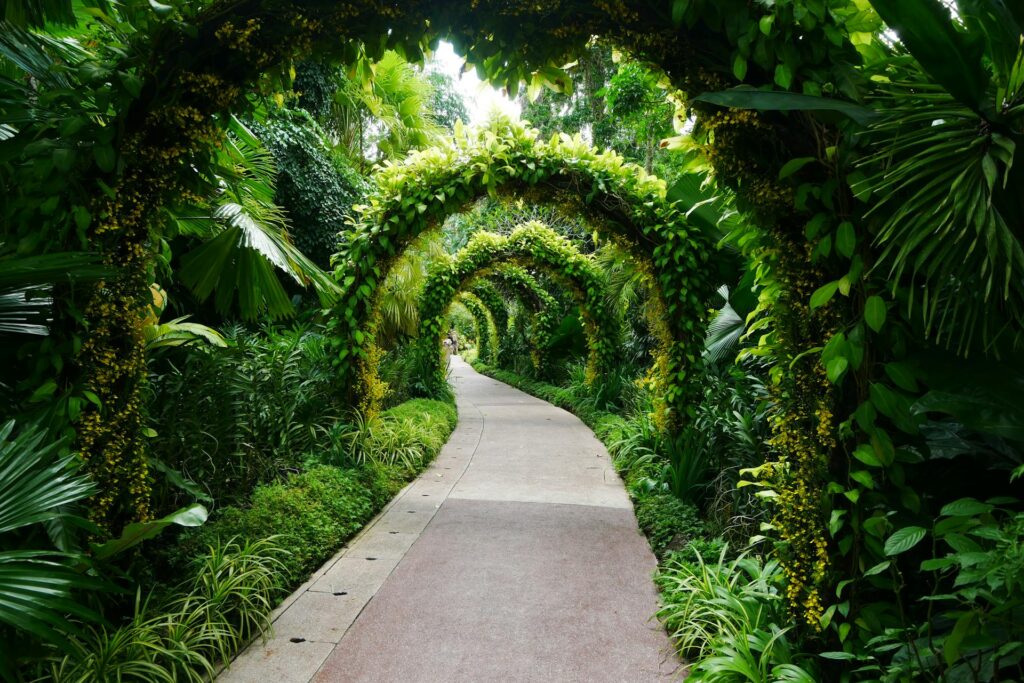
Fact 4: Singapore is one of the safest countries
Singapore consistently ranks among the safest countries globally. This reputation is upheld by its low crime rates, efficient law enforcement, and stringent legal system. With well-trained police forces, strict regulations, and comprehensive urban planning, Singapore provides residents and visitors with a secure environment. This commitment to safety extends to various aspects of society, including public spaces, transportation systems, and national security measures, making Singapore a reassuring destination for both living and visiting.
Fact 5: Singapore has many prohibitions and heavy fines for violations
Singapore enforces strict regulations and hefty fines for various violations to uphold its laws and maintain social order. These include rules regarding public cleanliness, vandalism, smoking in prohibited areas, littering, and drug-related offenses. Heavy fines are imposed for traffic violations, such as speeding and illegal parking. Additionally, Singapore has stringent laws against drug trafficking and possession, with severe penalties, including imprisonment and capital punishment. Overall, these measures aim to ensure cleanliness, safety, and adherence to the law in Singapore.
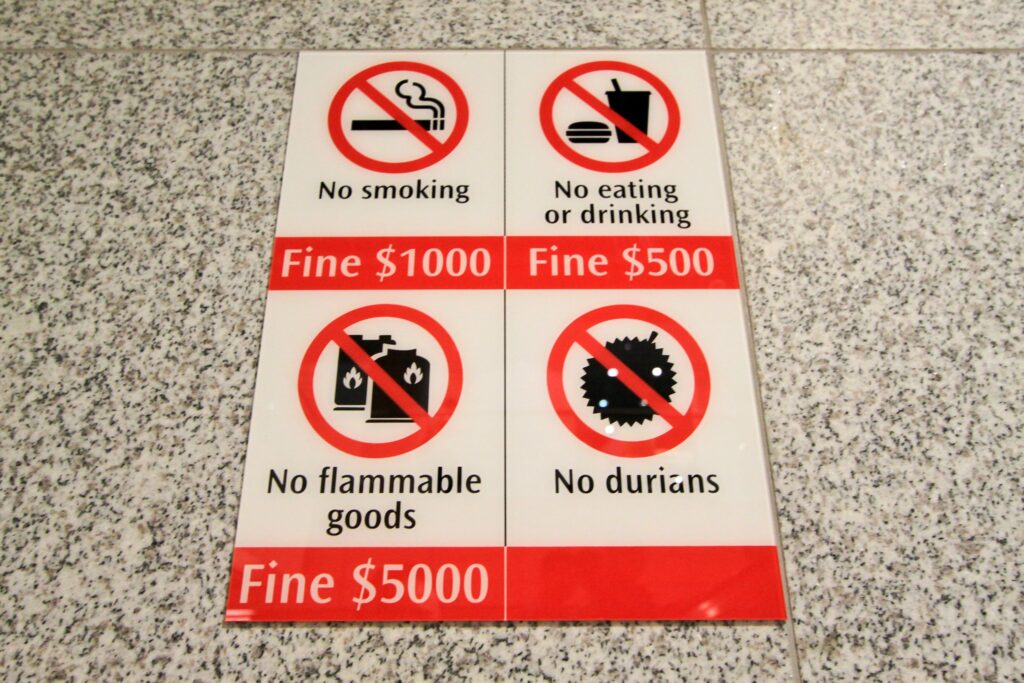
Fact 6: Singapore has compulsory military service for men
Singapore implements compulsory military service, known as National Service (NS), for male citizens and permanent residents upon reaching the age of 18. Under the National Service Act, eligible individuals are required to serve in the Singapore Armed Forces (SAF), the Singapore Police Force (SPF), or the Singapore Civil Defence Force (SCDF) for a period of approximately two years. This mandatory service aims to ensure the country’s defense and security, as well as instill discipline, leadership, and a sense of national identity among its citizens.
Fact 7: Botanical Garden UNESCO cultural heritage site
Singapore Botanic Gardens is a UNESCO World Heritage Site, recognized for its outstanding universal value as a botanical and horticultural institution. Established in 1859, the Singapore Botanic Gardens is one of the oldest gardens of its kind in the world and serves as a center for plant research, conservation, and education.
The Gardens’ lush landscapes, diverse plant collections, and historic landmarks, such as the National Orchid Garden and the Swan Lake, attract visitors from around the globe.
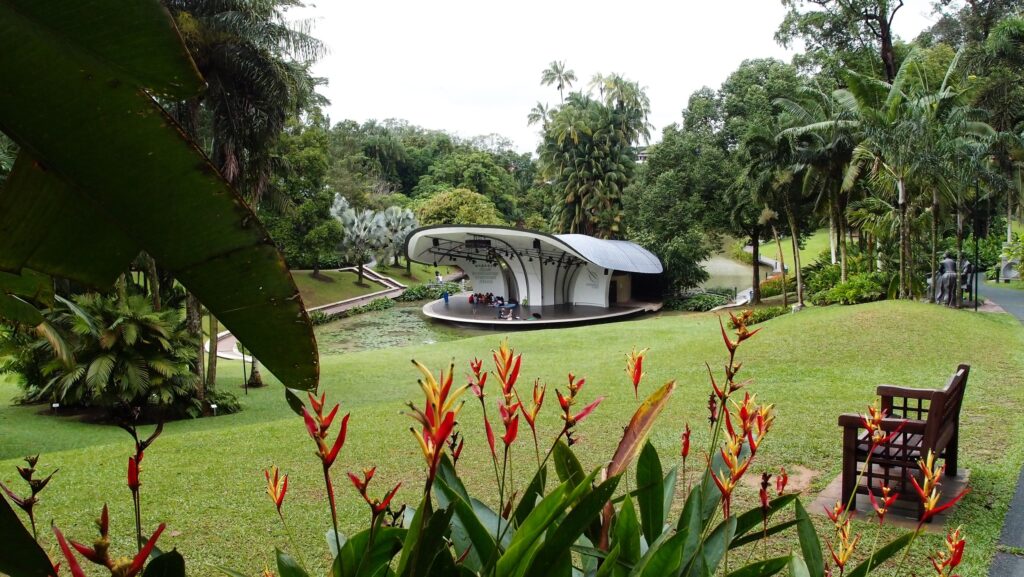
Fact 8: Temperatures in Singapore almost never drop below 20 degrees
Due to its location near the equator and its maritime climate, Singapore experiences consistently warm and humid weather throughout the year. The average daily temperature typically ranges from 25 to 31 degrees Celsius, with minimal seasonal variation. Occasional cooler temperatures may occur during rainy periods or when affected by monsoon winds, but it is uncommon for temperatures to fall below the 20-degree mark in Singapore.
Fact 9: Singapore is hosting Formula 1
Singapore has been hosting the Formula 1 Singapore Grand Prix since 2008. The race takes place on the Marina Bay Street Circuit, a street circuit that runs through the Marina Bay area of Singapore. The Singapore Grand Prix is one of the highlights of the Formula 1 calendar, known for its challenging track layout, spectacular night race setting, and vibrant atmosphere. The event attracts racing enthusiasts and visitors from around the world, contributing to Singapore’s reputation as a premier destination for sports and entertainment.
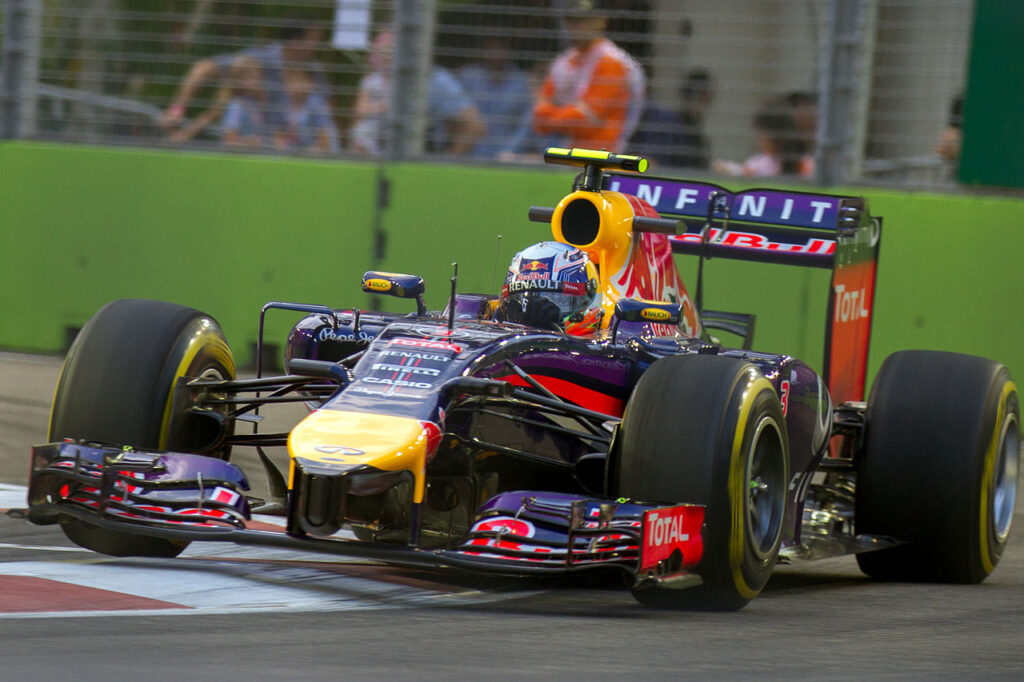
Fact 10: Singapore has a large number of millionaires
Singapore has one of the highest concentrations of millionaires per capita in the world. According to various reports and studies, Singapore ranks consistently among the top countries for millionaire density, with a significant proportion of its population classified as high-net-worth individuals (HNWIs).
Factors contributing to Singapore’s large number of millionaires include its robust economy, favorable business environment, low taxation, and strategic location as a global financial hub. The city-state’s wealth management sector, banking industry, and thriving entrepreneurship ecosystem also attract affluent individuals and investors from around the world.

Published March 30, 2024 • 7m to read

